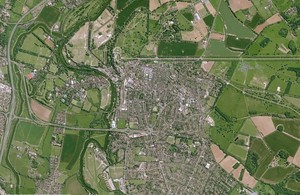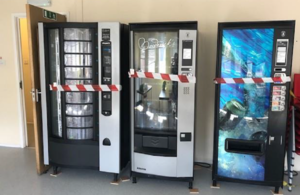Prime Minister’s statement to the House of Commons: 16 June 2020
Mr Speaker,
Before I begin, I am sure the whole House will join me in paying tribute to the memory of Jo Cox, who was cruelly murdered four years ago today.
Her sister, Kim Leadbeater, spoke for us all when she urged everyone to remember Jo by pulling together with “compassion and kindness”.
I was concerned to learn that the Hon Member for East Dunbartonshire is now in hospital: we send her our best wishes.
Mr Speaker, with permission, I will make a statement about the ambitions of a Global Britain and the lessons of the Covid-19 pandemic.
We are living through a daily demonstration of how events on the far side of the world influence not only British security and prosperity, but something as elemental as the state of our health, and whether we can go to work or buy our daily bread.
This crisis offers vivid proof of the seminal importance of international engagement and exactly why our country must perform its global role.
I have begun the biggest review of our foreign, defence and development policy since the end of the Cold War, designed to maximise our influence and integrate all the strands of our international effort.
The overriding aim is to bring this country’s strengths and expertise to bear on the world’s biggest problems, seizing the opportunities of Britain’s presidency of the G7 next year and the UN climate change conference, COP26, which we will host in Glasgow.
The UK possesses the third biggest aid budget and diplomatic network in the world: we owe it to our people to make best use of these assets, which scarcely any of our peers can match.
The British taxpayer has the right to expect that we achieve the maximum value with every pound we spend.
One cardinal lesson of the pandemic is that distinctions between diplomacy and overseas development are artificial and outdated.
For instance, to protect ourselves against another calamity, the UK will need to work alongside our friends to strengthen international bodies like the World Health Organization, and help vulnerable countries to improve their health systems and achieve greater resilience.
It makes no sense to ask whether this amounts to aid or foreign policy: they are one and the same endeavour, and they’re designed to achieve the same goals, which are right in themselves and serve our national interest.
On 4th June I chaired a virtual summit of the global vaccine alliance, which raised enough money to immunise 300 million children.
I doubt whether any other occasion will save more lives, and avoid more suffering, or produce a better example of the good this country can do by its international engagement – in the true and broad sense – alongside our friends.
And yet today – as anyone with experience of it will know – a dividing line between aid and foreign policy runs through our whole system, with our Department for International Development working independently from the Foreign and Commonwealth Office, and our aid budget parcelled out between different arms of Whitehall.
DFID outspends the Foreign Office more than four times over and yet no single decision-maker in either department is able to unite our efforts or take a comprehensive overview.
We give as much aid to Zambia as we do to Ukraine, though the latter is vital for European security.
We give ten times as much aid to Tanzania as we do to the six countries of the Western Balkans, who are acutely vulnerable to Russian meddling.
And, regardless of the merits of these decisions, no single department is currently empowered to judge whether they make sense or not: we tolerate an inherent risk of our left and right hands working independently.
Faced with this crisis today – and the opportunities that lie ahead – we have a responsibility to ask whether our current arrangements, dating back to 1997, still maximise British influence.
Those well-intentioned decisions of 23 years ago were right for their time.
They paved the way for Britain to meet the UN target of spending 0.7 percent of national income on aid, a goal that was achieved by the Coalition Government in 2013 and has been maintained ever since – including this year – and which remains our commitment.
Yet those judgments date from a relatively benign era when China’s economy was still smaller than Italy’s and the West was buoyed by victory in the Cold War.
We must now strengthen our position in an intensely competitive world by making sensible changes, and so I have decided to merge DFID with the Foreign and Commonwealth Office to create a new department, the Foreign, Commonwealth and Development Office.
This will unite our aid with our diplomacy and bring them together in our international effort.
DFID has amassed world class expertise and all of its people can take pride in how they have to helped transform the lives of hundreds of millions of people around the world.
To select but a few examples, they have striven to protect millions of children across the world from polio – which is now on the verge of global eradication – and they have paved the way for millions of girls to attend school for the first time in countries like Pakistan, as I have seen for myself.
They have done their utmost to ease the suffering in Syria and in Sierra Leone they were central to the defeat of an outbreak of the Ebola virus.
All this amounts to the finest demonstration of British values, following in the great tradition of the country that ended the slave trade and resisted totalitarianism.
And it is precisely that ambition, vision and expertise that will now be at the heart of a new department, taking forward the work of UK Aid to reduce poverty, and that will remain central to our mission.
The Foreign Secretary will be empowered to decide which countries receive – or cease to receive – British aid, while delivering a single UK strategy for each country, overseen by the National Security Council, which I chair.
Those strategies will be implemented on the ground by the relevant UK Ambassador, who will lead all of the Government’s work in the host country.
And in this we are following the examples of Australia, Canada and New Zealand, all of whom run their development programmes from their foreign ministries.
And we will align other British assets overseas, including our trade commissioners, who will come under the authority of the UK ambassador, bringing more coherence to our international presence.
Now, amid the pandemic, this House will ask whether this is the right moment to reorganise Whitehall.
In reality, this crisis has already imposed fundamental changes on the way that we operate and if there is one further lesson, it is that a whole-of-government approach and getting maximum value for the British taxpayer is just as important abroad as it is at home.
This is exactly the moment when we must mobilise every one of our national assets, including our aid budget and expertise, to safeguard British interests and values overseas – and the best possible instrument for doing that will be a new department charged with using all the tools of British influence to seize the opportunities ahead.
Mr Speaker, I commend this statement to the House.

